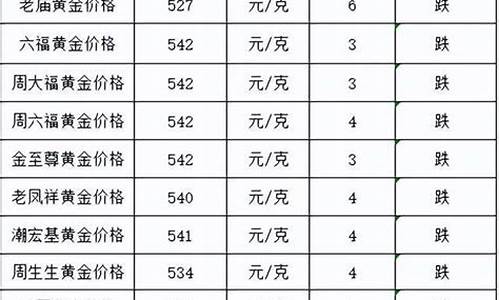国际油价波动分析与预测书籍_国际油价波动完形填空
1.英语语法时态知识点归纳
2.初二英语上册Module11模块综合试题
英语语法时态知识点归纳

英语时态是英语语法复习中重要的一个知识点,提前做好相应的复习非常重要。下面是我为大家整理的关于英语语法时态知识点归纳,希望对您有所帮助。欢迎大家阅读参考学习!
英语语法时态复习知识点
1. 一般现在时
①表示客观事实或普通真理(不受时态限制)
The geography teacher told us the earth moves around the sun.
Water boils at 100?C.
②表示现状、性质、状态时多用系动词或状态动词;表示经常或习惯性的动作,多用动作动词,且常与表频率的时间状语连用。
Ice feels cold.
We always care for each other and help each other.
③表示知觉、态度、感情、某种抽象的关系或概念的词常用一般现在时:see、hear、smell、taste、feel、notice、agree、believe、like、hate、want、think、belong seem等。如:
I know what you mean.
Smith owns a car and a house.
All the students here belong to No.1 Middle School.
④在时间、条件状语从句中常用一般现在时代替将来时。但要注意由if 引导的条件状语从句中可以用shall或will表“意愿”,但不表示时态。
If you will accept my invitation and come to our party, my family will be pleased.如果你愿意接受并参加我们的舞会,我的家人会非常高兴。
⑤少数用于表示起止的动词如come、go、lee、arrive、fly、return、start、begin、pen、close、end、stop等常用一般现在时代替将来时,表示一个按规定、或安排要发生的动作。当be表示根据时间或事先安排,肯定会出现的状态,只用一般现在时。
The shop closes at 11:00 p.m. every day.
Tomorrow is Wednesday.
2. 一般过去时
①一般过去时的基本用法:表示过去的事情、动作或状态常与表示过去具体的时间状语连用(或有上下文语境暗示);用于表达过去的习惯;表示说话人原来没有料到、想到或希望的事通常用过去式。如:
I met her in the street yesterday.
I once saw the famous star here.
They never drank wine.
I thought the film would be interesting,but it isn?t.
②如果从句中有一个过去的时间状语,尽管从句中的动作先于主句发生,但从句中的谓语动词连用过去式。如:
He told me he read an interesting novel last night.
③表示两个紧接着发生的动作,常由以下词语连接,用一般过去时。如:but, and, when, as soon as, immediately, the moment, the minute。
The moment she came in, she told me what had hened to her.
He bought a watch but lost it.
④常用一般过去时的句型:
Why didn?t you / I think of that?
I didn?t notice it.
I forgot to tell you I had been there with my brother before.
I didn?t recognize him.
英语完形填空复习试题
It was a freezing day, when I picked up a wallet in the street. There was nothing 1 but a letter that was 2 Hellen. On the torn 3 I found the return address, so I called information. The operator asked me to 4 on, and she came back on the 5 soon, she told me that Hellenes family had 6 their house years ago. Hellen had to 7 her mother in a nursing home.
I called and found out that Hellenes mother had 8 , The woman who answered 9 that Hellen herself was 10 living here.
The director waited for me at the 11 of the nursing home. I went up to the third floor. Hellen was an old woman with a warm smile and 12 eyes. I told her about finding the wallet and showed her the letter. She took a deep 13 “Young man,” she said, “this was the 14 letter I had written to Mike 60 years ago. I loved him very much. I guess no one ever 15 up to him. I still think of him?”
I thanked Hellen and came back to the director. His secretary looked at the wallet 16 and said, “Hey, that?s Mr. Goldstein?s. He?s always losing it. He?s 17 here on the 8th floor. That?s his wallet, for 18 .”
We hurried to him and asked 19 he had lost his wallet. Mike felt his back pocket and then said. “Goodness, it?s missing.”
When I returned him the wallet and told him where Hellen was, he grew 20 . “When the letter came,” He said, “my life ended. I never married.”
We took him to Helen?s room. They stood, looked at each other for a minute and embraced (拥抱).
1. A. on B. here C. inside D. outside
2. A. sent for B. written to C. given D. signed
3. A. letter B. envelope C. wallet D. back
4. A. hold B. keep C. put D. go
5. A. way B. floor C. line D. car
6. A. bought B. sold C. moved D. built
7. A. carry B. place C. drive D. bury
8. A. left B. returned C. stayed D. died
9. A. explained B. thought C. discovered D. considered
10. A. again B. still C. now D. then
11. A. door B. house C. office D. wall
12. A. bursting B. freezing C. friendly D. lively
13. A. dive B. sight C. how D. breath
14. A. important B. oldest C. first D. last
15. A. went B. matched C. caught D. measured
16. A. immediately B. clearly C. closely D. exactly
17. A. also B. over C. right D. still
18. A. sure B. pleasure C. help D. interest
19. A. that B. if C. where D. when
20. A. nervous B. silent C. pale D. anxious
参考答案:1~5 CDBAC 6~10 BBDAB 11~15 ACDDB 16~20 C高考英语语法时态复习知识点BC
英语常见单词
stamp邮票
envelope信封
package / parcel 包裹
overweight 超重
extra postage 额外邮资
send / post / deliver a letter / mail 寄 /发信
express mail 快件
airmail 航空信件
surface mail 陆地邮寄
open an account 开一个帐户
相关 文章 :
1. 英语语法:动词的时态和语态
2. 英语时态语法总结归纳
3. 英语语法16种时态总结
4. 初一英语语法学习知识点总结(词法、句式、时态)
5. 英语语法大全总结
初二英语上册Module11模块综合试题
同学们要每天坚持整理知识点,到考试时才能方便复习,教师们又要为同学们准备哪些模块综合测试题呢?下面是我为大家带来的关于初二英语上册Module 11模块综合试题,希望会给大家带来帮助。
初二英语上册Module 11模块综合试题:Ⅰ. 听力(10分)
(Ⅰ)录音中有五个句子, 听一遍后, 选择最佳答案。(5分)
1. A. Yes, I can. B. Yes, I could.
C. Yes, I am.
2. A. That?s very kind of you. B. Not at all.
C. With pleasure.
3. A. It?s not mine. B. I?ve no idea.
C. No problem.
4. A. Yes, I would. B. Yes, please.
C. Yes, I?d love to.
5. A. Children?s Day. B. New Year?s Day.
C. Teachers? Day.
(Ⅱ)录音中有一篇短文, 听两遍后, 选择最佳答案。(5分)
6. In ______ , people use knives and forks to eat.
A. China B. Korea C. Australia
7. In Europe, there are ______ dishes for every meal.
A. two or more B. two C. more
8. In the northern part of China, people often eat ______ .
A. rice B. noodles C. fish
9. In the ______ part of China, people don?t eat much fish.
A. eastern B. western C. southern
10. In some parts of India, people use ______ to pick up the food.
A. forks B. chopsticks C. fingers
Ⅱ. 单项选择(20分)
1. Children ______ sit in the front seat of a car. It?s too dangerous.
A. need B. needn?t C. must D. mustn?t
2. The vegetable soup ______ delicious. Can I he more?
A. looks B. tastes C. sounds D. feels
3. Many people like the girl ______ because she is beautiful, ______ she is kind-hearted.
A. not only; and B. not just; but
C. both; or D. not; and
4. I felt very afraid and excited when I took a plane ______ the first time.
A. in B. at C. with D. on
5. ______ nervous the girl was! She could not fall asleep all night.
A. What B. What a C. How
6.I don?t think Alice is able to do the job, because she had little ______ .
A. success B. difference
C. discussion D. experience
7. ?Why are you so hy?
?I ge Mr Wang a present and he ______ it hily.
A. refused B. accepted C. brought D. sold
8. ?What?s wrong with you, Eric? You look tired.
?I ______ to prepare for the final exam last night.
A. picked up B. woke up
C. stayed up D. put up
9. ?It?s cold outside. You?d better ______ the door.
?All right.
A. opens B. not open
C. not to open D. don?t open
10. ?TV says there will be a storm tomorrow.
? ______ . I planned to go climbing with my classmates.
A. I hope so B. I?m afraid so
C. Sounds good D. Bad luck
Ⅲ. 完形填空(10分)
Around the world, people he different ideas about what good manners are. When you go to restaurants in different parts of the world, it?s 1 to know the right and wrong things to do. For example, in China it?s OK to 2 a lot of noise in a restaurant. In fact, if a restaurant isn?t noisy and 3 , you may think there?s something wrong with it. However, in many western countries, restaurants are 4 places. If people at a table talk too loud, other people who are eating there might even 5 to the owner of the restaurant.
Paying the bill is also different from country to country. In China, one person usually pays for 6 . In western countries, one person pays if he or she is entertaining clients(宴请宾客), but 7 friends eat together, they usually share the cost. This is called ?going Dutch(均摊费用)?. Also, when westerners pay the bill, they usually lee some money for the 8 . This is called ?leing a tip?. Leing a tip is thought to be polite. In the US, it?s 9 to lee tips of 10%, 15%, or 20% of the bill, which is decided by how good the service(服务)is. Good waiters can make a lot of money!
The way people eat food is not the same in different parts of the world, but you can 10 the same kinds of food in many countries. Chinese and Indian foods, for example, are popular all over the world.
1. A. popular B. difficult
C. important D. enjoyable
2. A. cause B. keep C. hear D. make
3. A. lively B. friendly C. lucky D. polite
4. A. noisy B. quiet C. busy D. clean
5. A. shout B. explain C. complain D. speak
6. A. everybody B. nobody
C. somebody D. none
7. A. until B. when C. unless D. since
8. A. gatekeeper B. seller C. waiter D. visitor
9. A. terrible B. common C. serious D. unusual
10. A. invent B. discover
C. prefer D. find
Ⅳ. 阅读理解(10分)
For the British, home is a private place in which he or she goes to hide away from the troubles of life. It is very seldom that one would be invited to a British person?s home. It is rude to knock on a person?s door if you are not invited. If you are invited, don?t ask to see more than the downstairs that your British host invites you into. Never ask how much the house or any of the items in it cost.
To the American, most of them want their home to be a place where they can entertain(款待)and share their lives with their friends. They may be delighted to give you a full tour of their houses. They may also be pleased when you show your interest and pleasure in their houses.
Both British and American people will engage in quite a bit of chat and a drink or two before the meal is served. After the first mouthful, you should say how delicious the food is and ask something about it. Remember, never eat with your mouth open and make very little noise while eating. It would be nice of you to help your host in any way. Maybe offer to pour some drinks or clear up after the meal.
1. British people ______ invite friends to their home.
A. often B. always C. seldom D. never
2. If your British friend invites you to his home, you can ______ .
A. see anything you like
B. ask how much his house is
C. ask the cost of any of the items in it
D. only see the downstairs that you are invited into
3. What does the underlined ?engage in? mean in Chinese?
A. 陷入 B. 参与 C. 回避 D. 限制
4. What?s the main idea of the passage?
A. Some manners on visiting British and American people?s home.
B. Different table manners between British and American people.
C. Different ideas about the home between British and American people.
D. Different ideas about how to get along well with neighbors between British and American people.
第Ⅱ卷(共50分)
Ⅴ. 根据句意及首字母或汉语提示完成单词(10分)
1. Our English teacher is very s________. We are all afraid of him.
2. In the USA, when someone gives you a present, you must open it i________.
3. It?s a t________in China to give presents to friends during the Spring Festival.
4. There are many d________between my brother and I.
5. My brother put a bag of rice on his right ________ (肩膀)and left the shop.
Ⅵ. 完成句子(10分)
1. 他喜欢做运动, 例如篮球和足球。
He loves to play sports______ ______ basketball and .
2. 在英语考试中我常犯粗心的错误。
I often______ ______ ______ in English exam.
3. 希望你对这个问题给予关注。
I hope you will______ ______ ______this problem.
4. 我惊奇地发现他今天穿着一件最时髦的夹克。
I was______ that he wore a jacket in the latest______ today.
Ⅶ. 短文填空(10分)
从方框中选词并用其适当形式完成短文, 使短文意思完整、通顺。
open, who, until, country, cross, unless, order, that, two, man
In western countries, especially in America, some social customs he lasted 1 today. For example, ?ladies first?,2 is to say, ladies in those 3 are respected(尊重)in many ways.
In the USA and Europe, you will usually see men 4 doors for ladies and ladies generally walking ahead of 5 into a room or a restaurant 6 the man has to be ahead of the lady in 7 to choose the table, to open the door of a car or to help in other ways. In the street, men almost always walk or 8 the street on the side of the ladies 9 is closer to traffic, but if a man walks with 10 ladies, he should walk between them.
1. ______2. ______3. ______4. ______5.
6. ______7. ______8. ______9. ______10.
Ⅷ. 书面表达(20分)
如你是Tony, 你的网友Jim要去韩国参观, 他发邮件给你想了解有关韩国的风俗。请你根据下面提供的信息, 用英语给你的网友写一封电子邮件, 介绍一下韩国的风俗。(70个词左右)
1. 初次见面要鞠躬问好, 互换名片(business card), 并仔细看了名片后再放起来;
2. 乘坐地铁时不要说话;
3. 拜访朋友要带礼物, 并提前打好招呼。
Dear Jim,
I?m glad to hear that you will go to South Korea. ____________________________________________________________________
Yours,
Tony
[免责声明]本文来源于网络,不代表本站立场,如转载内容涉及版权等问题,请联系邮箱:83115484@qq.com,我们会予以删除相关文章,保证您的权利。












